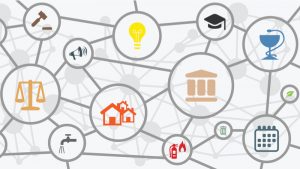After learning remotely for multiple semesters, most college students still prefer in-person learning, but a growing number of students want to see a mix of in-person and online learning post-pandemic, according to a new report.
After a year of distance and hybrid learning, The Conference Board’s Committee for Economic Development (CED) released a report identifying K-12 remote education deficits, as well as ideas on how schools can harness technology for future learning.
Organizations of all sizes had to adapt operations at the onset of the pandemic – and for many local governments, the rapid transition to virtual service delivery for its residents was a steep hill to climb. But the City and County of Denver was already on a path towards more flexible, agile service delivery, easing the incline when the pandemic hit.
State and local government IT leaders delivered relatively optimistic forecasts for the role of technology and the ability of government to deliver better services in a post-pandemic environment during a panel discussion June 15 at e.Republic’s virtual State of GovTech 2021 conference.
The National Highway Traffic Safety Administration (NHTSA) published a solicitation for collaboration efforts on the design, implementation, and operation of a nationwide geographic information system (GIS) data store as a means to create and adopt technical and operational requirements for a national interconnected 911 landscape.
The state and local government IT services market has finally reached its “app store moment,” thanks in part to the demands of the coronavirus pandemic and the need to improve service delivery and experience for citizens – and the government workforces that provide them.
The City of Los Angeles Information Technology Agency (ITA) introduced the SmartLA 2028 strategy, a concise summary of their vision, approach to being a Smart City, and roadmap to accomplish said vision by 2028.
Sens. Mark Warner, D-Va., and Susan Collins, R-Maine, asked Secretary of Education Miguel Cardona to ensure that schools nationwide are aware that they can use Federal funding from COVID-19 relief bills to improve cybersecurity.
The National Telecommunications and Information Administration (NTIA) released the Final Rule for its Connecting Minority Communities (CMC) Pilot Program this week, to provide $268 million to historically Black Colleges or Universities (HBCUs), Tribal Colleges or Universities (TCUs), and minority-serving institutions (MSIs) to expand their broadband.
Sharing data in the cloud provides educators and students the ability to work and study wherever they are. Still, it also comes with some key security considerations, especially when creating your cloud strategy.
Recent
-
 Trump Signs Order to Preempt State AI Laws and Push Single Federal Framework
Trump Signs Order to Preempt State AI Laws and Push Single Federal Framework -
 Government, Industry, Academia Collaboration Fuels AI Progress
Government, Industry, Academia Collaboration Fuels AI Progress -
 Indiana DOE Partnership Targets STEM, Digital Learning Tools
Indiana DOE Partnership Targets STEM, Digital Learning Tools -
 States, Schools Harness Data and Workforce Programs to Combat Fraud, Cyber Threats, and Service Outages
States, Schools Harness Data and Workforce Programs to Combat Fraud, Cyber Threats, and Service Outages









